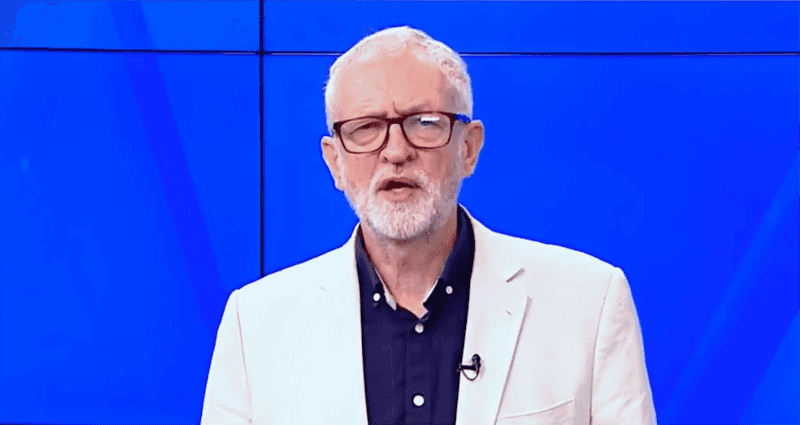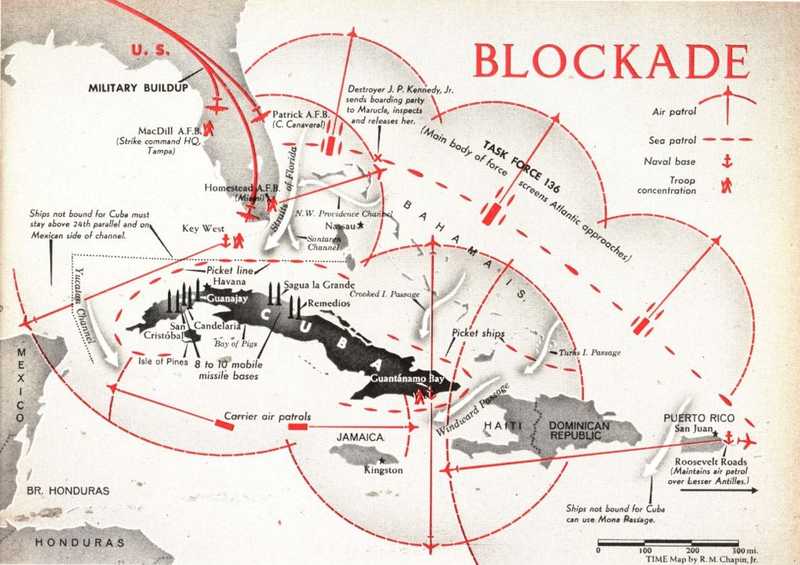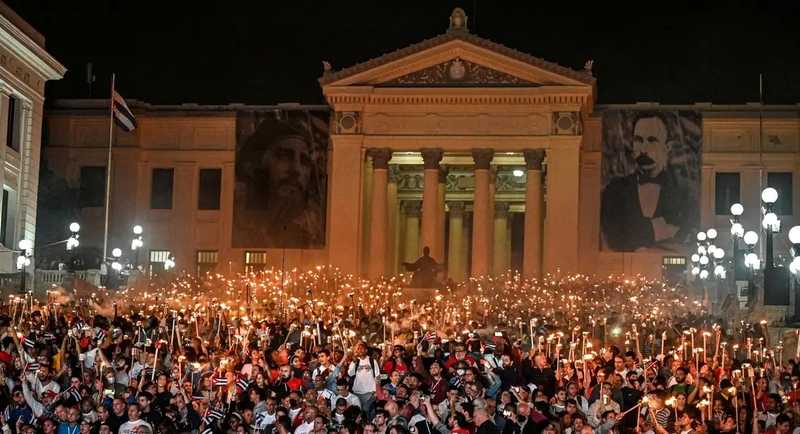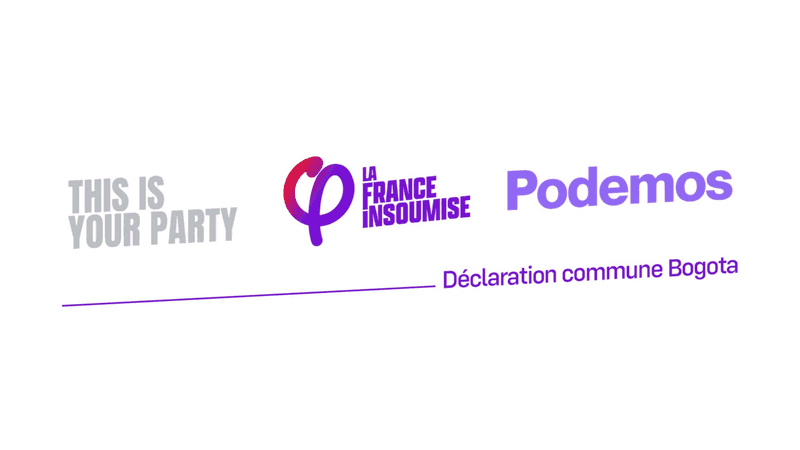
Hello friends. I’m delighted to address you today at the Progressive International’s second summit.
These talks often begin with the speaker stressing that we meet at an urgent moment. But today, when you look around you, you can’t help but see it’s true. So much is happening in the world - and so quickly - that sometimes it's dizzying and hard to keep up.
The Progressive International is a young project but it has already done so much to bring us together, to act for radical change and to make our fast-moving world comprehensible. I’m proud that the Peace and Justice Project is a member and I am honoured to sit on the Council with so many inspiring leaders and activists.
The PI’s first summit, held in September 2020, took place under the title of “extinction or internationalism”. A year and a half on, we have to be realistic: the dial has edged closer to extinction.
Last month the UN’s climate scientists warned it’s “now or never” to limit global warming. You can almost hear them screaming at their keyboards, desperate for governments to actually do something, when they outline the need for “rapid, deep and immediate” cuts in CO2 emissions.
The red alert comes after the failure of COP26 in Glasgow, where we had to rely on alternative voices at the margins of the event to tell us the truth and plan a better future. But their words - and those of the scientists - are not just a warning about the future; they describe the present reality for billions of people.
South Asia is now into its third month of extreme heat, with temperatures soaring above 40 degrees centigrade day after day. Imagine that: no respite, no relief, working in that heat.
We humans are incredibly adaptable but death comes sooner when it is so hot. Scientists have found that even relatively small increases in average temperature hugely increase the risk of mass heat-related deaths. We’ve seen how extreme heat causes forest fires, destroying habitats and killing animals and people.
30 million people were displaced by climate shocks in 2020. And these shocks store up more strife to come by wrecking harvests. Punjab, India’s breadbasket, has already seen a worrying drop in wheat yield this year due to the heat.
And it’s not just South Asia that is sweltering. In March, both the Arctic and the Antarctic were 30 degrees Celsius above their usual average temperatures at the same time. Let me say that again. The North Pole and the South Pole were both 30 degrees Celsius warmer than usual in March. Ice is melting and sea levels are rising. Small island nations are at risk, as are the many billions of people who live on a coast or rely on supply chains that need coastal infrastructure.
We know that the ruling economic model, with its pollution, extraction and built-in obsolescence has little regard for our environment. But its arteries, the global supply chains that connect the world's mines, factories, shipping lanes, ports, warehouses, delivery networks and consumers are already massively disrupted, even before the full effects of climate breakdown are felt. In the heavily integrated global capitalist economy, especially after decades of the IMF forcing countries to abandon production for their domestic markets, disruption spells disaster. Already over 800 million people - one in ten people of the entire world’s population - go to bed hungry.
The price of wheat has doubled already this year. And it could rise further as the effects of Russia’s criminal invasion of Ukraine and Russia’s resulting partial economic isolation is felt. The two countries were in the top five wheat exporters in the world before the war. Many countries in the Global South rely on them for their food supplies.
Russia’s war on Ukraine must be condemned. And it should focus our attention on all the other victims of war in belligerent countries and all around the world. Of course, we stand with the people of Ukraine, as we stand with every people suffering invasion, displacement and occupation. And we must remain utterly steadfast, as progressive movements around the world, in our support for refugees, whose rights and lives must be protected. Those fleeing the violence and the hunger in Afghanistan and Yemen, now the world's poorest places after their destruction by war, must be met with humanity and hospitality, not racism and resentment.
Wars lead to hunger, mental distress, misery and death for years after the fighting stops. We have no time to waste. There must be an immediate ceasefire, the withdrawal of Russian forces and a negotiated settlement.
If there isn’t. Not only will the Ukrainian people continue to face the horror of shells, tanks and air raid sirens. Not only will Ukrainian refugees suffer uncertain futures and dislocation from their families and communities. Not only will young Russian conscripts be sent off to be brutalised in the army and die in a foreign land for a war they don’t understand. Not only will Russian people suffer under sanctions. Not only will the people of Egypt, Somalia, Laos, Sudan and many others that rely on wheat from the belligerent nations face rising hunger. Not only will prices for consumers all over the world rise, intensifying the struggle just to get by.
But everyone on earth faces the threat of nuclear armageddon. The threat of direct confrontation between Russian and NATO forces is a clear and present danger to all of us. Both sides are being egged on by wild and dangerous forces in their respective media. These actions are extremely dangerous. They build an atmosphere of maximum threat and fear that makes the end of life as we know it much more likely.
We’ve been here before. Most people don’t know how close we came to nuclear war. In 1983, the Soviet leadership was convinced that the West was going to launch a nuclear attack. On 26 September, the Soviet nuclear early warning system went off, suggesting the US had begun one. Protocol held that the USSR would launch an immediate retaliatory nuclear strike. The duty officer, Stanislav Petrov, overrode the protocol, preventing a retaliatory strike, believing - or maybe hoping - that it was a false alarm. He waited in those very nervous minutes to see if the bombs would land. He was right and he had saved humanity. That’s how close we came to annihilation. One man countermanding the established military protocols and trusting his own instincts over the technology.
That’s why it is so important that we support the Nuclear Weapons Ban, the Global Ban Treaty, which is now part of international law thanks to inspiring campaigning by countries in the Global South. And we must now come together and build a global peace movement. As the PI political declaration states: dismantle the war machine and build a diplomacy of peoples.
It will not be easy. Weapons companies do extremely well out of war. They fund politicians and think tanks. They have their many media mouthpieces. Those that strive for real peace are vilified because behind conflict stands the interests of the war machine.
It’s why campaigners for justice are so relentlessly attacked too. They threaten the ill gotten wealth and power of the few. We see it time and time again. Their interests are not the general interest. They’re not your interests.
We see it with painful clarity in the pandemic as Big Pharma refuses to share vaccine technology that was mainly developed with public funds. Who benefits? The pharma executives and shareholders. Who loses? Everyone else. More mothers and fathers die. More livelihoods are wrecked. And the threat of viral mutation hangs over everyone, vaccinated and unvaccinated alike.
How do they get away with it? They’ve convinced the governments of some of the richest and most powerful countries that corporate interests are their interests. It’s no conspiracy. Just look at the facts. The state is used to prop up the wealth of the richest. Central banks pumped in $9 trillion in 2020 in response to the pandemic. The result? Billionaire wealth went up by 50% in one year when at the same time the world economy shrank. It got smaller.
The billionaires and corporations claim to hate government action. In reality, they love it. The only thing they hate is governments acting in your interests.
And so they fight to keep governments in their pocket and try to overthrow those that aren’t. They need the state to prop them up. With economic growth likely to be low in the coming decades as the elite avoids and mismanages the energy transition, the wealth and the debts of the powerful will need constant buttressing by central banks and government policy.
So when we step back and survey all of those dangers and dynamics that go with them, a truth dawns on us. We used to think that there were a series of distinct crises: the climate, the refugees, the housing, the debt, the inequality crisis, the crisis of the rich getting richer and the poor getting poorer. We tried to isolate each one and solve it.
Then we began to realise that the major crises: of capital, climate and empire: were interlocking. So we had to engage with all of them at the same time but in different ways.
Now we can see that we don’t face multiple separate crises. The system itself is the crisis. The global system is not in a crisis that can be resolved. The system is crisis and must be overcome, replaced, transformed. As the slogan goes, we need system change, not climate change.
That’s why this week, the Progressive International meets under the not so cheery title of Summit at the End of the World.
Because the end of the world is already here — it is just unevenly distributed. The image of apocalypse — bombs and raids, oil spills and wildfires, disease and contagion — is reality for people across the planet.
The periphery is the future, not the past. We were told that developed countries give the developing an image of their future. But the periphery sits at the vanguard of history — where the crises of capital hit hardest, the consequences of climate collapse arrive the quickest, and the call to resist them rings the loudest.
And that resistance is powerful and inspiring. There is plenty, however, plenty to give us hope.
Since the last PI summit, the world witnessed the largest strike in history. Indian farmers and their worker allies resisted two neoliberal bills that the Modi government wanted to force through their parliament. The farmers stood up for themselves, their livelihoods and the needs of the poor. And they won.
Or take Amazon, the world’s fifth largest company that made record profits in the pandemic. Its greed and exploitation is being fiercely resisted by workers, communities and activists on every continent in the world. They have come together to Make Amazon Pay.
In Latin America, in country after country, the people are rallying to support progressive political leaders to say no more to the domination by capital, the destruction of their communities and the abuse of their environments.
But it’s not enough to just resist. We have to build too.
And that’s what I see in communities all over the world. People coming together in the face of adversity and realising that if they work together they achieve more. Socialism is already in our communities. It’s our job, our cause, to nurture it into a powerful alternative.
And that is what we are doing here this week. This Summit is a site of construction**.** Why are we taking stock of this dying world? It is to build the new one that will replace it — brimming with life, bound by love, powered by popular sovereignty.
How do we do that? It’s so urgent. There really is no more time to waste.
First, we unite. Progressive forces on the need to come together across borders and across issues to mobilise and organise to confront the crises of capital, climate and empire.
That means the task facing each and every one of us is two fold. We strengthen workers and rural workers in their struggles against exploitation, people and communities in their fights for dignity and progressive forces to mobilise state power. And we bring them all together into powerful peoples’ alliances with the capacity to remake the world.
As the system breaks down, we will face the champions of reaction, as well as the elite that wants to keep things as they are. We have already had a taste of their poison with Trump, Bolsonaro, Modi, Erdogan, Putin and Duterte.
To defeat these monsters of our time and new ones to come we build popular power to unite the struggle against the end of the world with the struggle at the end of the month. Our movements must make life better for most people with: secure livelihoods, housing, healthcare, more time to spend with friends and loved ones, power over their own lives and a clean, safe and sustainable environment.
If we do that, we will breed hope over despair. And we will give life to a new world out of the ashes of this one.
So I want you to commit today: Double your efforts in the struggles you are involved in. Join that campaign you’ve been thinking about joining. Show that real solidarity. Stand up to bullies. Build trade unions. Be part of movements. And help bring them together, as we are doing today in the Progressive International.
A new world is ours to build. Do it for yourself. Do it for your family. Do it for your community. Do it for humanity.
There’s no one coming to save us. Just ourselves.
If we don’t, life will be much worse for most people in a generation’s time.
But if we do, life will be much better.
I want you to be able to look back in a generation’s time and say, yes, I built the trade unions, the community organisations, the social movements, the campaigns, the parties, the International that turned the tide.
I want you to be able to say, yes, we are the greatest generation that together produced and distributed the food, homes and healthcare so no one endures poverty, preserved and shared the wisdom of the peoples of this planet, spread love between people and communities, built the energy system to decarbonise our planet, dismantled the war machine and supported refugees, reined in the power of the billionaires and secured a new international economic order.
Will it be easy? Of course not. We will face enormous resistance. Of course we will.
There will be ups and there will be downs. But every day we can wake up and know that we will do our small bit. That’s all we can do. Day after day. Week after week. Month after month. Year after year. Building our campaigns, building our movements, building our power and taking the future into our own hands.
That’s how great victories were won in the past. All the struggles that came together: for the vote, for independence, for civil rights, for land, for health, for jobs: that made our world more civilised. We can take great strength and pride from this history. And we can and we will stand on the shoulders of the world’s young and claim their futures and opportunities.
Even in the face of enormous resistance and oppression and a system falling apart, we will build a world fit for the next generation.
As the great and wonderful Chilean poet Pablo Neruda once wrote, “you can cut all the flowers, but you cannot stop spring from coming.”
And spring, my friends, is coming.




